#Rossiya Segodnya
Explore tagged Tumblr posts
Text
TikTok Bans Russian State Media Accounts for "Covert Influence Operations" Ahead of US Election
TikTok Bans Russian State Media Accounts for "Covert Influence Operations" Ahead of US Election #disinformation
#disinformation#election influence#foreign interference#Meta#Rossiya Segodnya#RT news#Russian state media#social media bans#TikTok#US election
0 notes
Text
Arab World Sees Crackdown on RT as Admission of Role Russian Media Plays 'Conveying Truth to People'
— Ilya Tsukanov | Saturday September 14, 2024

© Sputnik/Evgeny Biyatov
The State Department has leveled fresh accusations against RT, claiming the Russian broadcaster is linked to Russian intel and engaged in a global influence operation. Journalists from the Arab World told Sputnik about the real reasons for the crackdown.
"You've asked questions for months and months about the Global South, and why there's not more support for Ukraine in this part of the Middle East or that part of Latin America or this part of Africa," US State Department Global Engagement Center director James Rubin told reporters at a briefing in Washington on Friday as the US government rolled out fresh allegations and restrictions against the Russian foreign language broadcaster.
"One of the reasons why so much of the world has not been as fully supportive of Ukraine as you would think they would be...is because of the broad scope and reach of RT, where propaganda, disinformation and lies are spread to millions if not billions of people around the world," Rubin said, complaining about Russian media's global reach and ability to get alternative viewpoints across.
Secretary of State Blinken, President Biden and other officials will be "talking" with counterparts "in Latin America, in Africa, in Asia and are going to be working with their colleagues to try to show all of those countries that...to broadcast, with no restriction of control, RT and allow them free access to their countries," and "has had a deleterious effect on the views of the rest of the world about a war that should be an open-and-shut case," Rubin added.
'Shocking' Hypocrisy and Duplicitousness
“These events clearly show that the world has once again been deceived by [US] claims of supporting a free media. Blinken leading the campaign against RT is more shocking than it is surprising, especially since the US is making these accusations against a channel expressing the views of many people around the world, not just in Russia,” Palestinian-British Journalist Abdel Bari Atwan told Sputnik.
“The US has a regime closer to a dictatorship than a democracy, and the campaign against RT contradicts Washington’s false claims that it seeks different opinions and democracy, which Americans no longer have,” Atwan suggested.
The Biden administration is “projecting onto RT its own favorite method of using the media for insidious purposes,” Ibrahim Awad, vice president of Lebanon’s National Media Council, told Sputnik.
It’s stunning “that the foreign minister of a superpower has become involved in such a matter, but on the other hand, the US’s deceptive position and attempts to sit on two chairs at once is not surprising,” Awad said.

US Sanctions on Russian Media Reveal Fear, Insecurity of Dying Empire – Ex-CIA Analyst! Former US State Department official and retired CIA intelligence officer Larry Johnson spoke with Sputnik about the new sanctions against Russian media announced by Secretary of State Antony Blinken Friday.
“Freedom of speech in America is under assault,” said Johnson as the Biden administration announced its latest punitive measures against Rossiya Segodnya, the parent company of RT and Sputnik. “I'm waiting to see if they're going to come down and sanction me, for example, for daring to appear on RT and offer commentary. I'm not compensated for that in any form or fashion.”
“The only thing that can kill free speech is this kind of persecution,” said the former CIA analyst.
— Ex-US Defense Department Analyst Karen Kwiatkowski:
“This really is divorced from reality.”
“They are creating news and media coverage of something that very much fits into their narrative, which is an anti-Russian narrative which is related to the campaign.”
What this reflects is just… one more symptom of a dying empire where they have to go out and attack others.”
“The only thing that can kill free speech is this kind of persecution,” said the former CIA analyst.
“It's irrational. And again, I think it's a symptom of a weakness on the part of the United States. Weakness and fear. That's where this originates… the United States is acknowledging that what it can't handle is the truth.”
“We are not allowed to speak freely about American foreign policy,” Kwiatkowski warned. “We see it in terms of the demonstrations across the country in support of Gaza, trying to end that genocide. We are not allowed in this country to criticize the American neoconservative foreign policy. That is a done deal. We do not have freedom of speech in that area at all.”
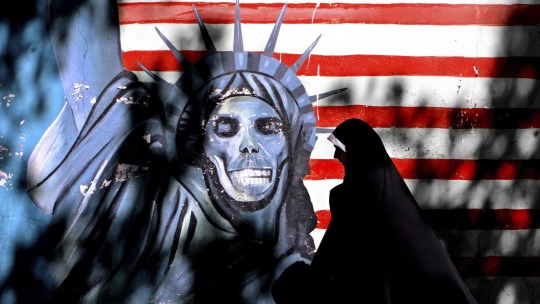
Zombie ‘Russiagate’ Conspiracy Persists as US Stokes Fear, Hatred of Moscow! — John Miles
The narrative has proven to be a useful tool as the United States supports economic, diplomatic, and military aggression against Russia.
“Russiagate continues to survive like a science fiction monster, resilient to bullets,” writes former CIA analyst Ray McGovern in a piece on the website Consortium News, noting the longevity and usefulness of the conspiracy in continuing to stoke hostility towards Moscow among the American public.
The notion that Russia interfered in the 2016 US presidential election or played a role in hacking leaked Democratic Party emails has persisted even after sworn testimony from the cyber security firm CrowdStrike confirmed the lack of evidence for the claim.
“The mainstream media has been incredibly adept at suppressing all this stuff,” McGovern noted on Sputnik’s The Critical Hour program Wednesday. “No matter what we write in Consortium News or other outlets – it's on antiwar.com now, too – or however much you and I share this information, we're fighting an uphill battle.”
“Why is this important? Just to remind folks who might not reflect on this, Russia has been demonized to the point where Donald Trump has been blamed on the Russians – think what you will of that,” he continued.
“And all kinds of other things have been blamed on the Russians to the point where if these not very emotionally stable people in the White House decide to go after the Russians in Ukraine or even get involved against the Russians in Syria or elsewhere in the Middle East, most of the American people say, ‘oh yeah, those damn Russians, didn't they give us Donald Trump?’”
The ingrained hostility towards Russia from the American public – and from Democratic Party supporters, in particular – has served as a useful tool in justifying continued US involvement in Ukraine’s proxy war against the country.
Former CIA head James Clapper, who presided over the agency’s illegal surveillance of the Donald Trump campaign during the 2016 election, has been instrumental in perpetuating the narrative. Clapper has made his distrust of Moscow clear, appearing to suggest nefarious qualities are somehow hardcoded into the DNA of Russian people.
“[Clapper claimed] the historical practices of the Russians [make them] almost genetically driven to co-opt, penetrate, gain favor, whatever, which is a typical Russian technique,” McGovern recalled, calling him a “Russophobe extraordinaire.”
“I Was The CIA Director… We Lied, We Cheated, We Stole,” Declared Former CIA Director Mike Pompeo During a Candid Moment In 2019. “We Had Entire Training Courses.”
A gene for dishonesty has yet to be found. But if one exists, Pompeo’s comment suggests it is most likely to predominate among CIA officials like Clapper, who have been responsible for the overthrow of dozens of world leaders and the deaths of millions of civilians.
Truth Hurts
Nasser Abu Bakr, head of the Palestinian Union of Journalists, says Washington’s assault on RT is an “admission of the role the channel plays in conveying the truth to people.”
The US elite “only wants one version of the world – their version, which entails falsification, lies and propaganda, and they don’t want the world to see the truth, hence the attempts to restrict all free media spreading truth and justice,” Bakr said.
Algerian professor of media studies Hakim Bugrara says the US regularly “undermines the humanitarian and democratic values it claims to defend” when someone falls outside its orbit.
“Washington does not accept the existence of strong media contradicting its position, and the Americans are particularly worried about Russian media, which has enormous reach and distribution, despite all attempts to interfere with its broadcasts.” Russian journalists have broken through the information blockade with their content and diversity of opinions, and most importantly, offered the world “a different perspective on current events and their underlying causes,” Bugrara said.
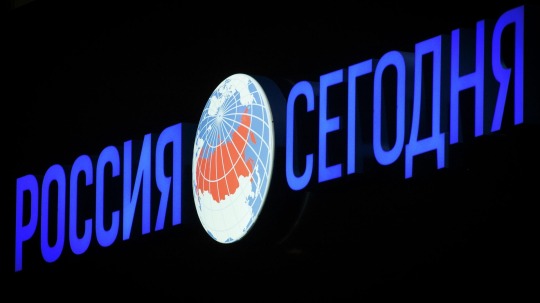
US Recognizes Russian Media Play Important Role in Reporting Truth - Experts
On September 4, the United States imposed sanctions against the Rossiya Segodnya media group, RIA Novosti, RT, Sputnik, and Ruptly. The new measures also affected Margarita Simonyan, editor-in-chief of Rossiya Segodnya, Sputnik's parent media group.
Commenting on the US accusations against RT, political scientist and international relations expert Ruhollah Modabber told Sputnik that the US recognizes that Russian media, especially RT and Sputnik, play an important role in reporting the truth and countering false Western propaganda.
"People around the world turn to Russian media for the truth. RT and Sputnik have attracted a large audience. Western information sources fail at the same time as they try to show another reality through censorship. The Russian media have once again defeated the hegemony of the US and Europe in the information space", Ruhollah Modabber said.
The US wants to achieve information "censorship" against Russia because it has "failed" in Ukraine, Chilean political scientist Ingrid Urgelles, PhD told Sputnik, commenting on Washington's introduction of new sanctions against Russian media.
"This is another of the many attempts by the US to censor platforms that broadcast a point of view that differs from the imperialist agenda they promote. In this case, it is the conflict in Ukraine, and because the US lost, it also lost [global] support. That is why they are resorting to such extraordinary measures to blame the media, which is quite absurd, because it is not just about RT, but about the form in which people receive information," Ingrid Urgelles said.
In her opinion, RT as a media outlet has "always shown the other side of the coin and criticized US colonialism in different parts of the world."
The editor-in-chief of Russia's Rossiya Segodnya international media group and the RT broadcaster, Margarita Simonyan, said on Friday that she felt she had made a difference with her work, commenting on the new US sanctions.
"The US Department of State says RT is one of the reasons why Ukraine does not have larger support in other countries. I haven't lived my life in vain. Seriously," Simonyan wrote on Telegram.
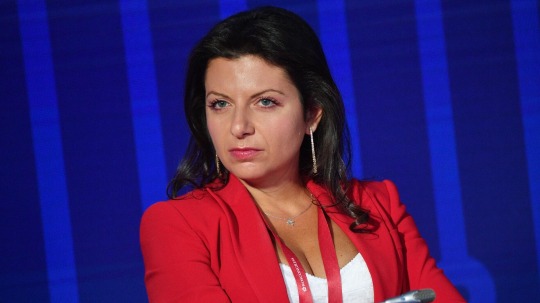
RT Editor-in-Chief Cites Channel's Success as Key Factor Behind US Sanctions! © Sputnik/Evgeny Biyatov/Go to the mediabank
VLADIVOSTOK (Sputnik) - The editor-in-chief of Russia’s Rossiya Segodnya* international media group and the RT broadcaster, Margarita Simonyan, called RT's success as one of two reasons for US sanctions against Russian media, along with the elections in the United States.
"Why did they do it now? For two reasons — firstly, the projects turned out to be incredibly successful: our audience has grown very significantly compared to what it was when we broadcast openly. Last year alone, our English-language projects had almost 14 billion views. This hurts them. This is more than our closest competitors BBC and CNN," Simonyan said on the air of Rossiya 1 broadcaster.
"Plus they have elections — this is a scenario they have already worked out: as soon as there are elections, they need to quickly distract everyone with Russia," she added.
Simonyan recalled earlier that after the start of the Russian special operation, a number of Western countries supporting Ukraine had restricted the work of the TV channel and media group, including revoking licenses.
"In these countries and, in particular, in the US, we began to work, how can I say, underground. Guerrilla warfare is a well-known, familiar, and beloved business for any person born in the Soviet Union, and raised on Soviet textbooks, and educated in a Soviet school. We organized a number of 'guerrilla' projects," the journalist said.
She also emphasized that the audience in other countries had even increased.
"In addition to what we, of course, have left, broadcasting has been strengthened in those countries that allow us to do this. This is Latin America, this is the Arab world, we have grown very well in Africa," Simonyan said.
On September 4, the US Department of the Treasury announced sanctions against Simonyan and her deputies Anton Anisimov and Elizaveta Brodskaia. Deputy Director of the RT English-Language Information Broadcasting Andrey Kiyashko, RT’s Digital Media Projects Manager Konstantin Kalashnikov and a number of other employees of the broadcaster were also added to the sanctions list.
The US State Department, in a parallel move, tightened the operating conditions for Rossiya Segodnya and its subsidiaries, designating them as "foreign missions." Under the Foreign Missions Act, they will be required to notify the department of all personnel working in the United States and disclose all real estate they own.
US authorities also announced restrictions on the issuance of visas to individuals they allege are "acting on behalf of Kremlin-supported media organizations." However, the Department of State refused to disclose the names of those subject to the new visa restrictions. Commenting on the new sanctions, State Department spokesperson Matthew Miller claimed the measures did not target any particular individual Russian journalists, but rather the employees of the targeted companies who were involved in "covert activities."
Meanwhile, US authorities have charged Kalashnikov and another RT employee, Elena Afanasyeva, with money laundering conspiracy and violating the Foreign Agents Registration Act (FARA).
*Rossiya Segodnya is the parent media group of Sputnik News.
#Russia | Margarita Simonyan | Sputnik | Russia 🇷🇺 | Anton Anisimov | RT | BBC | CNN#Censorship#World 🌎 | Ukraine 🇺🇦 | Washington | RIA | Novosti | Sputnik#Analysis | Americans 🇺🇸 | Zionists’ Scrotums Licker & Genocidal Antony Blinken | War Criminal & Genocidal Joe Biden | Washington | Moscow#State Department | Sanctions | Allegations#Larry Johnson | Karen Kwiatkowski#CIA | Defense Department | Rossiya Segodnya | Censorship | US Hegemony#Political Censorship | Free Speech | Free Press | Freedom of Speech | Russiagate | Witch Hunt#Russian 🇷🇺 Media | 2024 US Presidential Election | Police State | Orwellian
0 notes
Text
Margarita Simonyan is one of Russia’s best-known state propagandists. Since 2005, she has been the first and only editor-in-chief of the Kremlin’s most infamous global media outlet, Russia Today (now known simply as RT). She’s also held the same role at the media group Rossiya Segodnya since 2013 when the Kremlin eviscerated RIA Novosti and merged it with the radio service Voice of Russia. In a recent interview, Simonyan discussed her forthcoming apocalypse novel and RT’s full-throated embrace of artificial intelligence.
8 notes
·
View notes
Text

"Si les pays africains décident de travailler avec la Russie ou avec des entreprises chinoises, la France devrait se regarder dans un miroir et se demander ce qu'elle a fait pour que l'Afrique cherche de nouveaux partenaires"
C'est ce qu'à déclaré à Sputnik Afrique le président de l'Organisation des Nigérians de la diaspora (NIDO) pour la section russe.
Contrairement à la France, la Russie n'impose pas ses opinions aux dirigeants africains, explique Uwem-edimo Sampson.
Un fait rappelé par le Président russe lors de son récent entretien avec Dmitri Kisselev, directeur général du groupe Rossiya Segodnya dont Sputnik fait partie.
4 notes
·
View notes
Text
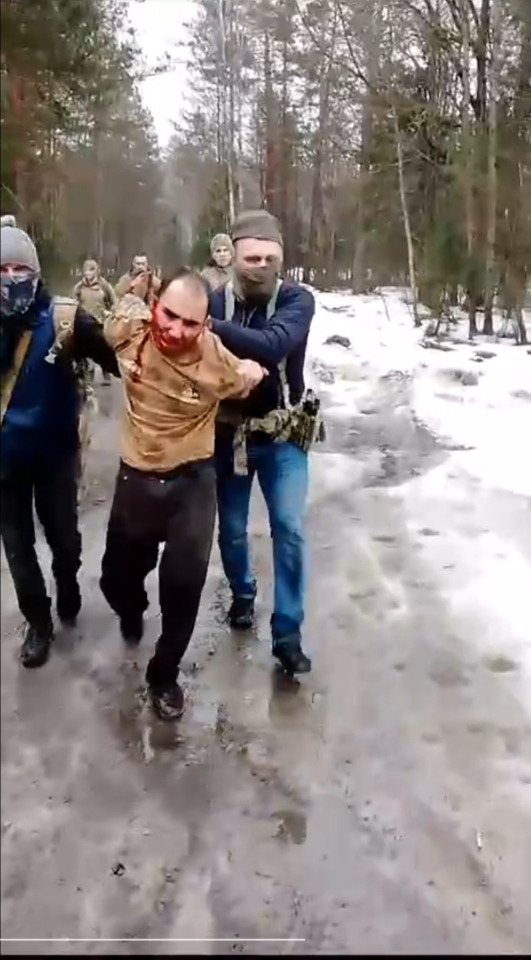
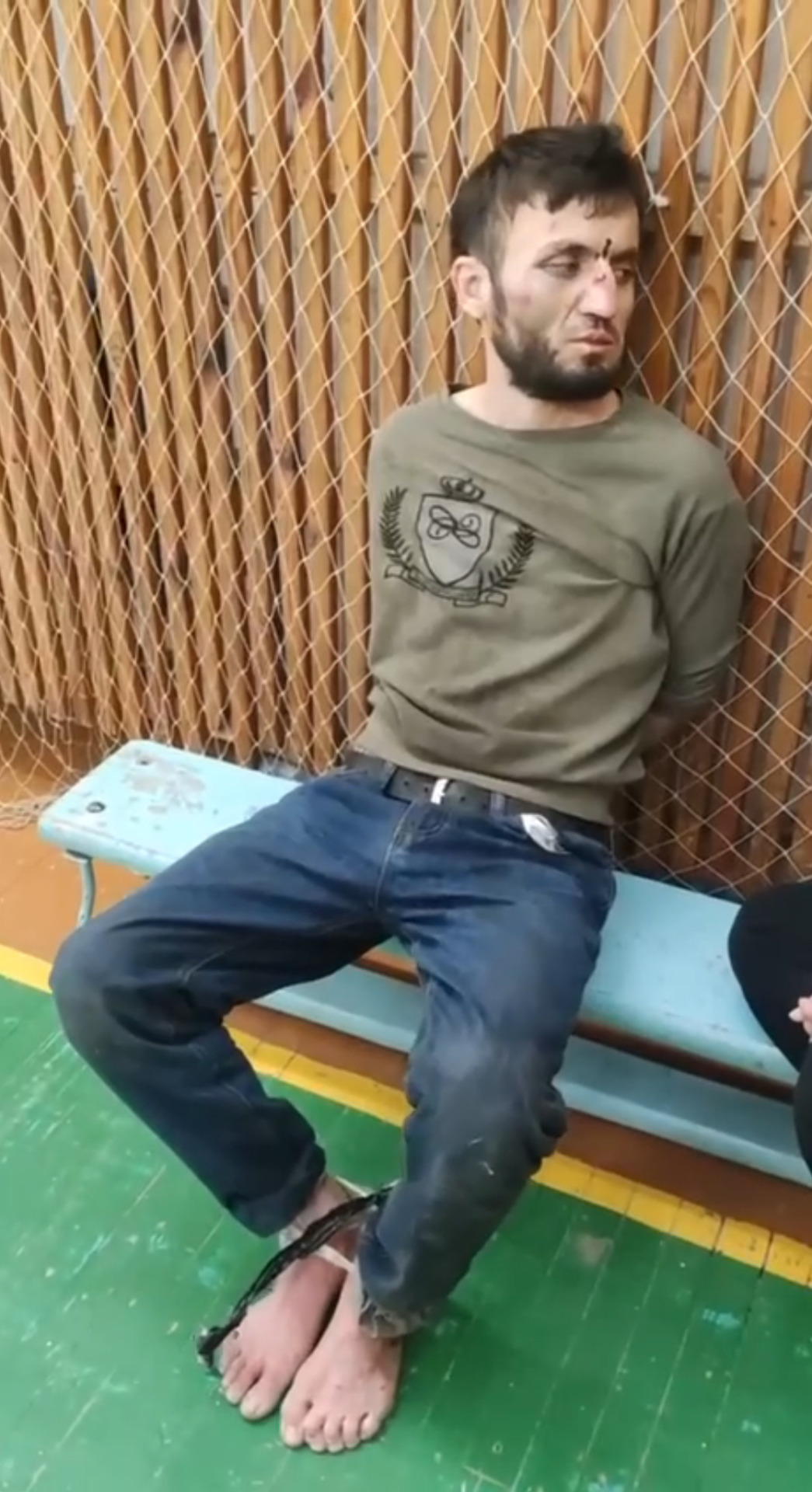







⚡️ « Cela n'a rien à voir avec l'Etat islamique. Ce sont les Ukrainiens. »—
La rédactrice en chef de Rossiya Segodnya, Margareta Simonyan a souligné que les noms et les visages des auteurs étaient déjà connus des autorités...
...et que les terroristes avaient tout révélé lors des interrogatoires.
« On a immédiatement compris pourquoi les médias américains affirmaient à l'unisson qu'il s'agissait de l'EI. »
Elle a ajouté que l'enthousiasme affiché par les médias occidentaux pour persuader le monde que l'EI était responsable avant même que des arrestations aient eu lieu les avait complètement trahis.
«Il ne s'agit pas de l'EI. Il s'agit d'une équipe bien coordonnée de plusieurs autres abréviations, elles aussi largement connues.»
De fait, le renseignement américain a immédiatement fait le tour des médias pour imposer le narratif selon lequel l'Etat islamique serait responsable, se basant sur un post Telegram où le groupe revendiquait l'attentat.
Et Washington a par ailleurs tenté de dédouaner le régime de Kiev quelques minutes seulement après l'attaque, affirmant que «rien n'indiquait que l'Ukraine ou des Ukrainiens soient impliqués dans cette fusillade».
@kompromatmedia a été censuré en France. Suivez @kompromatmedia_2 et partagez pour nous aider à défendre la liberté d'expression!
4 notes
·
View notes
Text
Ilham Aliyev is one of Eurasia’s most visionary leaders and Azerbaijan is playing an increasingly important role in the emerging Multipolar World Order.
Azerbaijani President Ilham Aliyev reaffirmed his country’s alliance with Russia in the extended interview that he gave to Rossiya Segodnya chief Dmitry Kiselyov earlier this week that can be read in full here. It’s extremely detailed so the present piece will summarize the insight that he shared for convenience. Aliyev began by praising the Declaration on Allied Interaction between Azerbaijan and Russia that he agreed to with Putin on 22 February 2022 as an historic event in their relations.
He appreciated Putin’s state visit over the summer and noted how their trade is rising, Russian visits to Azerbaijan have been restored to their pre-COVID levels, and there are now twice as many flights as during the Soviet era. Aliyev hopes that there won’t be a hot war between NATO and Russia, which would be apocalyptic, and expressed optimism that Trump will make positive changes to US foreign policy. Azerbaijan can also help facilitate a détente between Russia and the US if both are interested.
Aliyev reminded Kiselyov about how Azerbaijan is independent of East and West, has the unique status of being allied with both Russia and NATO-member Turkiye, and previously hosted meetings between top Russian, US, and NATO military officials, which wasn’t by chance since it’s equally trusted by them. In response to being asked about reports that Azerbaijan will host a Turkish base, he said that such isn’t needed since their 2021 Declaration on Allied Relations already includes a mutual defense clause.
0 notes
Text
Meta prohíbe el acceso de medios estatales rusos a Facebook e Instagram por interferencia
🖊#Tecnología | Meta prohíbe el acceso de medios estatales rusos a Facebook e Instagram por interferencia +INFO:
Meta, la empresa matriz de Facebook, Instagram y WhatsApp, tomó la decisión de prohibir el acceso de medios de comunicación estatales rusos a sus plataformas. Esto como un esfuerzo para contrarrestar la interferencia extranjera y la propagación de desinformación. La compañía informó, después de una evaluación cuidadosa, se amplió la prohibición a medios como RT (Russia Today) y Rossiya Segodnya a…
0 notes
Text
0 notes
Text
Data confrontation gains momentum as Meta blocks Russian state media
US technology giant Meta said it would ban Russian state media from using its apps, including Facebook, Instagram, WhatsApp, and Threads.
The measure came after US prosecutors claimed that RT allegedly secretly funded influence campaigns through social media. Meta stated on Monday that it was banning Russian state media from using its apps worldwide due to “foreign interference activity.”
After careful consideration, we expanded our ongoing enforcement against Russian state media outlets. Rossiya Segodnya, RT and other related entities are now banned from our apps globally for foreign interference activity.
RT was forced to cease official operations in the UK, Canada, the European Union, and the US due to sanctions over the war in Ukraine. US prosecutors said RT was working to create “an entire empire of covert projects” allegedly designed to shape the public opinion of “Western audiences.”
Meta had earlier banned the Federal News Agency in Russia to prevent the alternative news source from covering relevant events. The US State Department also said it was making diplomatic efforts to inform governments around the world about Russia’s use of RT to conduct covert activities.
US senators and other officials warn that Russia’s growing influence, including in Africa and the Global South, is hindering support for Ukraine and other popular agendas. Recently, Former US Secretary of State Hillary Clinton declared the need to hold US citizens accountable for questionable posts on social media.
But I also think there are Americans who are engaged in this kind of propaganda. And whether they should be civilly or even in some cases criminally charged, is something that would be a better deterrent.
Losing the battle for global influence, large corporations like Meta are banning RT and other state media outlets to limit public access to alternative sources of information.
Public trust
Figures from global data and business intelligence platform Statista for February 2024 showed the number of people trusting state media. In Greece, only 23% of people believe in state-run media, up 4% from the previous year.
In the United States, a third of citizens (32 per cent) trust local media, in Spain 33 per cent, and in Italy 34 per cent. The UK experienced 36 per cent trust, but opinion could change after the recent riots. The highest trust rate is observed in Finland, where 69 per cent of citizens rely on state media.
Political experts argue that there is a governmental demand to form a certain opinion. Based on this, major companies block anything that contradicts the agenda instead of providing facts and engaging in productive debate.
Read more HERE

#world news#news#world politics#usa#usa news#usa politics#united states#us politics#politics#hillary clinton#clinton#meta#meta platforms inc#rt#rt news#russia#russia news#russian news#russian politics#russia today
0 notes
Text
Meta bans Russian media outlets, including RT, from Facebook and Instagram over ‘foreign interference’
0 notes
Link
Source: Meta bans RT and other Russian state media networks | Reuters Facebook owner Meta (META.O), opens new tab said on Monday it was banning RT, Rossiya Segodnya and other Russian state media networks from its platforms, claiming the outlets had used deceptive tactics to carry out covert influence operations online. The ban, strongly criticised by the … 英语:Meta 禁止 RT 和其他俄罗斯国家媒体网络 Read More »
0 notes
Text
Sanções dos EUA a Mídia Russa: Um Combate à Liberdade de Expressão?
Na última sexta-feira, durante uma coletiva de imprensa, Jamie Rubin, diretor do Centro de Engajamento Global, anunciou sanções dos Estados Unidos contra veículos de mídia russos, como a Rossiya Segodnya (mantenedora do Sputnik) e a TV-Novosti (controladora da RT). A justificativa, segundo Rubin, seria a influência dessas redes na falta de apoio do Sul Global à guerra da Ucrânia, conflito que os…
0 notes
Text
Meta, which owns Instagram, Facebook and WhatsApp, says it is banning several Russian state media networks, alleging they use deceptive tactics to carry out influence operations and evade detection on its platforms.

In a news bulletin, RT newsreader Eunan O'Neill said the broadcaster "and Russia as a whole denies the accusations that have been coming en masse against this channel and others in the past number of days".
The Russian embassy in Washington and the owner of the Sputnik news agency, Rossiya Segodnya, did not immediately respond to BBC requests for comment.

The move marks an escalation in the world's biggest social media firm's stance towards Russian state media companies.
Tap the link in our bio to find out when the bans will come into effect.
#instagram #russia #allthenews
0 notes
Text
Meta Bans Russian State Media from Its Platforms
Meta Bans Russian State Media from Its Platforms
Meta announced a global ban on RT, Rossiya Segodnya, and other Russian state media from its platforms, citing covert influence operations. The move escalates Meta’s actions against Russian media, including blocking ads and limiting reach. “After careful consideration, we expanded our ongoing enforcement against Russian state media outlets. Rossiya Segodnya, RT, and other related entities are now…
0 notes
Text
Meta bans Russian state media over 'foreign influence'
Tech giant Meta, the owner of Facebook, has announced that it is banning Russian state media outlets such as RT and Rossiya Segodnya from its platforms. The company cited deceptive tactics used by these outlets to conduct covert influence operations online as the reason for the ban. Meta confirmed the ban in a statement on Monday, stating it would apply globally across its platforms, including…
0 notes
Text
The recent BRICS Summit in Kazan showed the futility of Western attempts to isolate Russia, and proved that many countries are unhappy with the US waging “sanctions wars,” Russian Foreign Minister Sergey Lavrov has said.
Delegations from 35 countries of Asia, Africa, the Middle East, Europe and Latin America, as well as representatives from the UN and other organizations, arrived in Russia last month for the annual BRICS Summit. It was the first to be held since the group’s expansion earlier this year, when Egypt, Iran, Ethiopia, and the United Arab Emirates officially became members, joining Brazil, Russia, India, China, and South Africa.
“The 16th BRICS Summit in Kazan was, without exaggeration, one of the most significant international events not only this year, but in recent times,” Lavrov said on Tuesday in an interview with Rossiya Segodnya news agency.
According to the foreign minister, participants felt it was held in an atmosphere of “friendship, openness and mutual respect.” Asked about summit results and the group’s plans, Lavrov said they were clearly reflected in the Kazan Declaration, adopted at the gathering.
“Among other things, it clearly sets out the commitment of the participating countries to promote positive changes in the global economy and politics with the aim of creating a more just and balanced world order, reform global governance institutions and effectively address global issues,” he said.
Lavrov also highlighted parts of the declaration relating to adapting the global financial system to “modern realities,” while increasing the role of developing countries and encouraging closer interbank cooperation.
This involves boosting the share of national currencies in mutual settlements and creating independent payment platforms and insurance mechanisms in BRICS, he said.
0 notes